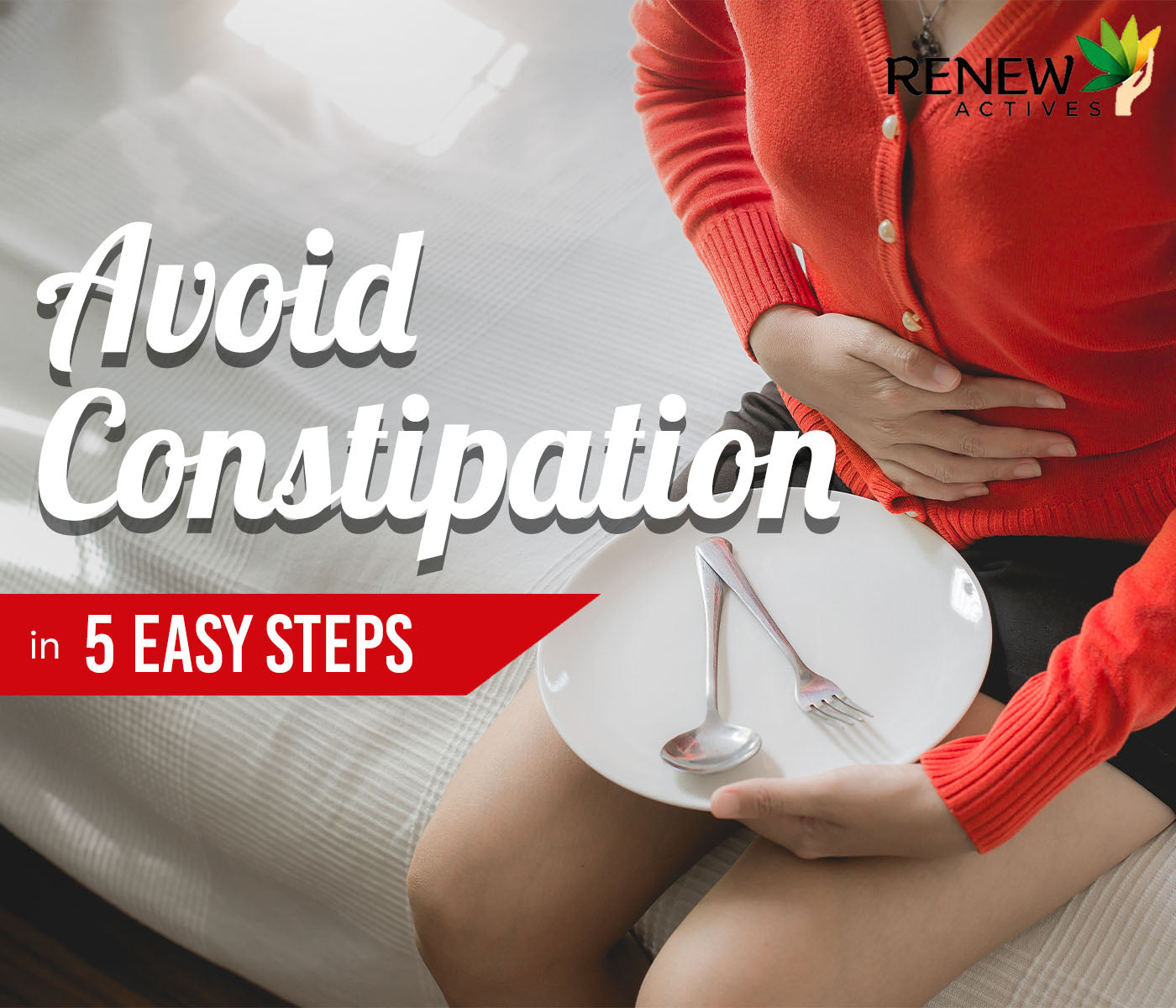
Avoid Constipation in 5 Easy Steps
Chronic constipation is characterized by infrequent bowel movements, hard and dry stools, stools that are difficult (and sometimes painful) to pass, and a feeling that not all stools have passed.
Though the condition is not considered serious, it does feel inconvenient and painful at times.
Constipation is not an unusual condition though. In fact, 16 out of 100 adults have had symptoms of constipation at one point in their lives.
People who are likely to become constipated are pregnant women, older adults, people who take certain medications, and people with certain health conditions.
The good news is there are ways to prevent constipation and below are some of them:
Increase your Fiber Intake

Fiber-rich foods like whole grain, fruits, and vegetables are known to help improve gut function. This is because fiber allows water to remain in your stool, making them softer and thus, easier to pass.
Soluble fiber also adds bulk to your stools, making it easier to pass them through your gut and avoid that constipated feeling.
If you’ve been feeling constipated for quite some time, adding fiber to your diet would be a good way to address it.
Increase your Probiotics Intake

Probiotics are beneficial bacterias usually found in fermented foods like kombucha, kefir, and tempeh. It can also be taken in the form of supplements.
Over the years, studies have shown that probiotics can treat several digestive disorders like irritable bowel syndrome and constipation just to name a few.
One particular study showed that increasing probiotics intake among children with constipation symptoms for 3 to 12 weeks helped improve their stool frequency.
Drink Plenty of Water Everyday

Proper hydration can help prevent constipation which is why it is essential to drink 8 or more glasses of water a day.
There are a few exceptions though when it comes to the kind of liquid you can take. For instance, milk has been known to cause constipation for some people while coffee and soft drinks, which contain caffeine, can promote dehydration.
Exercise regularly

It may seem unlikely but exercising regularly can also help prevent constipation. This is because exercise reduces the time it takes for food to move through your large intestine, effectively limiting the amount of water absorbed from the stool and into the body.
Exercise also helps accelerate your breathing and heart rate which helps trigger the natural contraction of your intestinal muscles thus, helping move stools out quickly and conveniently.
Go When You Feel the Urge

One of the common mistakes most of us commit when it comes to bowel movement is our tendency to wait.
Whether you’re busy or not, it’s important to answer the call of nature at the right moment. If you feel the urge to go, then don’t wait because normal bowel movement is essential.
This will help empty your intestines so you won’t feel bloated and have a hard time or experience pain when passing bowel.
Final Thoughts
You don’t have to strain yourself every time you “take the number 2.” By incorporating some of these changes to your lifestyle and habits, you don’t have to worry about the pain and inconvenience constipation brings.

